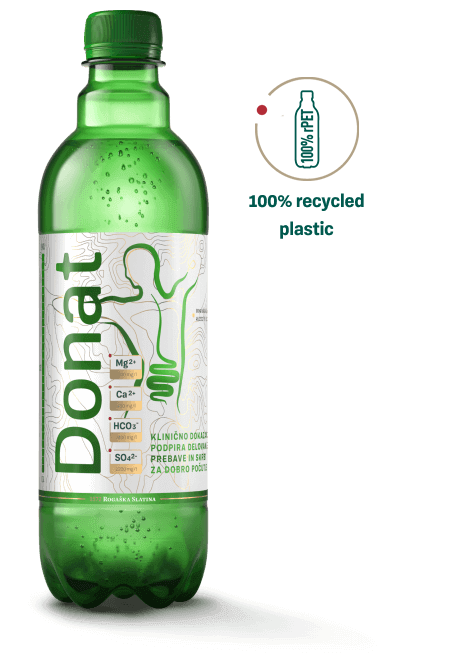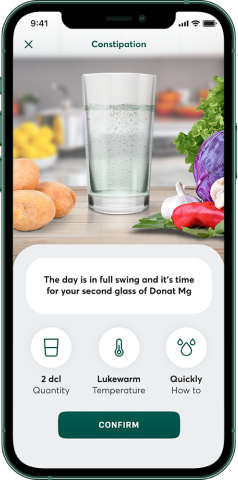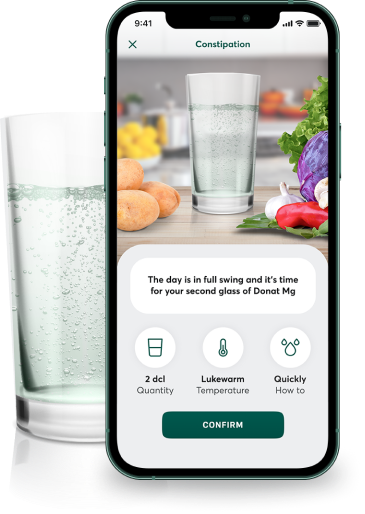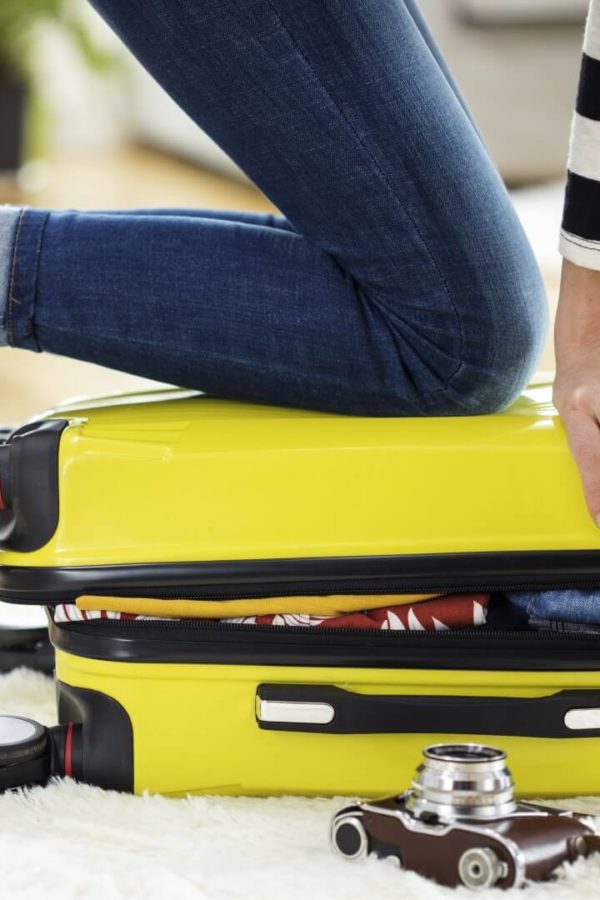All around you there’s a new world, exciting sights, interesting food… But in the pit of your stomach, that unpleasant feeling you get when your last visit to the toilet is just a faint memory. If you often suffer from travel constipation, then reading this article might be the first step on your journey towards better digestion. We’ll share a few simple tips to get it up and running, even when you’re far from home.
Travel constipation is a common problem
Don’t worry, you’re far from the only person who struggles with constipation while travelling. According to the most recent figures, over 40% of travellers or holidaymakers are affected. There are also many whose digestive tract has already slowed down due to stress in the lead-up to their trip.
Although short periods of constipation caused by a change of environment are not harmful, it can really spoil a holiday. It’s often accompanied by abdominal pain, cramps, a feeling of fullness and heaviness, and so on.
With travel becoming more popular again in the post-pandemic world, more people are likely to experience this problem in the future. So it’s essential that we know how to overcome it, and to do that we first need to know what causes constipation while away from home.
Why are we often constipated when travelling?
Why does constipation strike just when we should be having the time of our lives? The causes vary widely, so let’s list just the most typical ones:
- Changes in rhythm.
When we travel, we get up, eat and go to bed at different times than at home, especially if changes in time zone are also involved. - Stress.
The first days of a trip are often hard on the nerves and the body – the preparations, long journey, and often fear of flying. - Lack of a dietary routine.
Snacks are common on long trips, but once we reach our destination we want to try as many local delicacies as possible. These may be good for the taste buds, but not for the gut. - Skipping meals.
Whether because of stress or excitement, we may miss a few meals when travelling. Either way, it has a negative effect on bowel motility. - Ignoring signals.
We listen to our body’s signals in our everyday lives, but in a new environment we easily get distracted. Thus we may ignore bloating or cramps until they become a serious concern. - New environment.
Many people find it difficult to do their business in an unfamiliar bathroom, especially with the potential lack of privacy in public toilets.
Are you often constipated even when you’re not travelling? Find out what causes constipation and how to eliminate it.

How to prevent constipation while travelling or on holiday
Travel constipation most often strikes in the first few days of a trip. That’s why good preparation is key. Let’s look at some simple actions you can try.
#1 Start your travel preparations in good time
What does having your suitcases packed on time have to do with digestion? Less stress. Last-minute battles with nerves can have a huge impact on the digestive tract.
When you’re dealing with complications, you’re also likely to miss your body’s signals. You fail to go to the bathroom, you ignore bloating or a slight stomach pain… And then it’s suddenly too late.
#2 Don’t forget healthy eating habits
During the holidays, we often tend to indulge in fast food, sweets and snacks. However, you should be careful, especially if you often suffer from constipation. Your diet away from home should still include plenty of fibre in the form of fruit, vegetables and wholegrain cereals. Fermented products are also an excellent choice.
You can start with healthy snacks for the journey. Instead of reaching for sandwiches and pizzas, consider the following:
- tortillas with tuna and vegetables,
- vegetable salad with couscous,
- sliced apples or pears,
- prunes,
- figs,
- nuts or seeds.
Another important tip: don’t skip meals! Make sure you have breakfast, lunch and dinner, and a healthy snack if necessary. This will stimulate the bowel to trigger the defecation reflex. If your itinerary allows it, try to eat at around the same time every day.
#3 Make sure your fluid intake is adequate
Do you drink less when travelling so that you have to go to the toilet less often? Practical, but bad for digestion, as less fluids make bowel movements more difficult.
The volume of the stool decreases, and it becomes more compact. You may also suffer from cramps and abdominal pain.
Drinking enough water is essential when travelling, too. For women this means 1.6 litres, or 6–8 glasses, while for men it is around 2 litres, or 8–10 glasses of water per day. And if you’re more active, you’ll naturally need even more fluids.
Not a big fan of water? Try natural mineral water, freshly squeezed fruit juice, or unsweetened tea. And steer clear of large amounts of coffee, carbonated drinks, and alcohol.
#4 Take your time when exploring new cuisines
For many people, food is a key part of their travels. However, unfamiliar ingredients prepared in new ways can affect the digestive system in unpredictable ways.
If you have a sensitive digestive system, introduce new foods slowly and gradually. For the first few days, prepare snacks that your body is used to or that you know don’t cause problems. Then slowly move on to new dishes.
If you’re planning a more active holiday (a cycling tour, longer walking trips, etc.), where fitness is essential, be especially careful as you don’t know the effects of new foods on your body. Stick to tried and tested options that you know won’t interfere with your activities.
#5 Plan your toilet breaks along the way
If you’re used to having a bowel movement at the same time every day, adjust your itinerary accordingly. Make sure you’re near a clean toilet at that time, where you can relieve yourself comfortably.
Don’t avoid bowel movements just because you’re not at home and the toilet isn’t to your liking. When you feel the urge, go to the toilet as soon as possible. Take your time and try to relax.
#6 Exercise regularly
The beauty of holidays is… the rest! The intentional lazing around, the slower pace of life, not having to constantly run back and forth. But if you spend your days just lying on the beach, you won’t be doing your gut any favours.
Therefore, make sure you get your daily dose of physical activity on holiday too: do at least 20 minutes to half an hour of exercise. On long car and plane journeys, stretch regularly, as prolonged sitting can reduce blood flow to the pelvic organs and contribute to constipation.
#7 Eat foods that stimulate digestion
We’ve already seen that a fibre-rich diet is vital for healthy digestion: fruit, vegetables, wholegrain products, nuts… But there are other foods and drinks that speed up digestion, such as:
- olive oil,
- avocado,
- ginger,
- peppermint,
- warm water with lemon,
- plums.
#8 Help yourself with natural laxatives
When even good preparation, a fibre-packed diet, and a water bottle constantly at your side are not enough to prevent digestive discomfort, it’s time for a more direct approach. Consider using laxatives, but before you reach for suppositories or tablets, you could try something more natural.
Thanks to its unique combination of minerals and high mineral content, Donat natural mineral water is an excellent aid for regulating digestion. It’s clinically proven to have beneficial effects on various parts of the digestive tract, and when combined with healthy habits, contributes to overall health and well-being.
In addition to its effects on digestion, it also relieves heartburn, headaches, and a number of other ailments. Would you like to know more? Find out how Donat works.
To be as effective as possible, Donat must be consumed in the right way. If you get constipated while travelling, we recommend:
- Drink 0.2 or 0.3 litres of Donat in the morning on an empty stomach.
- Drink another 0.2 l in the evening before dinner.
- The morning dose can be warmed up to the body temperature of 37°C for a quicker effect. This will also allow the CO2 that causes bloating in some people to evaporate.
Get to know Donat even better and learn how to use it properly for healthy digestion. You can also download the app that reminds you to drink Donat correctly.
Donat has no side-effects when consumed in moderation, and does not cause any dependency. Therefore, you can enjoy it without worrying about getting too used to it.
#9 Relax and enjoy
Are you one of those people who can’t relax on holiday? Always thinking about what else there is to see, or what else needs to be done…? Stop the stress that’s causing constipation! Slow down, get into the holiday rhythm and don’t worry about the little things. Stick to the rule: a calm mind ensures good digestion!
If you relax, you’ll find it easier to listen to your body and notice that your digestion isn’t working as well as it should. And, of course, you’ll then be able to take action sooner.

Frequently Asked Questions
1. How frequent is constipation during a travel?
According to some data, almost half the people suffer from constipation on a travel or vacation.
2. What are the causes of constipation on a travel?
Slow digestion occurs due to stress, changed eating habits and rhythm of life. It also happens because we often do not pay so much attention to the signals our body, i.e., our digestive system, sends when we are in a new environment.
3. How to prevent constipation on a travel?
Since it is easier to prevent slow digestion than to treat it, it is vital to make sure we have a healthy diet during our trip, full of fiber, and to drink enough liquids. If we often suffer from digestive problems during a travel, it is important to plan the activities and make sure before going on a trip that we will be able to eat the food that works for us there as well (or buy the food that we know works for us beforehand).
4. What to do if we simply cannot avoid constipation during a travel?
If we know that we will suffer from constipation during our trip, the best is to bring laxatives.
5. Is it useful to drink Donat mineral water on a trip?
Donat is an excellent companion in any adventure because it supplies the body with crucial minerals, and at the same time, it regulates digestion in a natural and harmless way. This way it makes sure that slow digestion does not spoil the beautiful experiences.


Shopping assistant
Already more than
75 000 users
Reminders for drinking Donat
Use
our mobile application
Choose the right drinking regime
for your goal and the application
will lead you through the day
with reminders and useful tips.

Use
our mobile application
Choose the right drinking regime
for your goal and the application
will lead you through the day
with reminders and useful tips.
Choose chapter:






